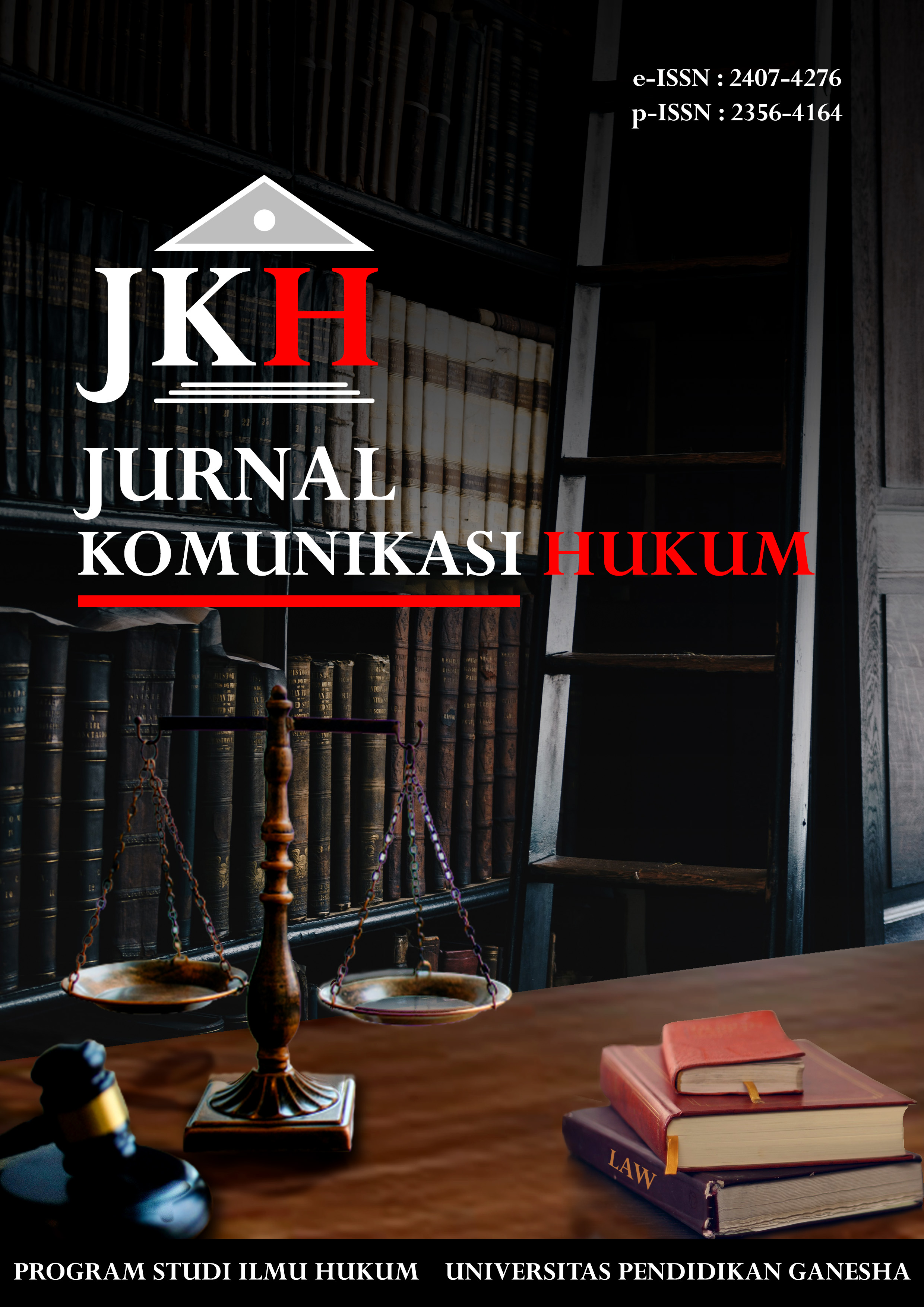The Applicability Of Force Majeure Clause During The Covid-19 Pandemic In Indonesia And France
DOI:
https://doi.org/10.23887/jkh.v7i2.38838Abstract
The Covid-19 pandemic that has occurred almost all over the world has had a very significant impact on various aspects. In this regard, the pandemic has directly or indirectly affected international trade. International business contracts are one of the essential elements in carrying out an international trade. The covid-19 pandemic that has occurred has resulted in implications and disruption to the ongoing contracts carried out on international scale. The current pandemic has raised a question, whether if the covid-19 pandemic can be classified as a force majeure circumstances or not. Reflecting on these problems, this study will examine the rules and regulations of force majeure from the legal perspective of Indonesia and France as countries that have adopted the civil law legal system. In addition, this study also discusses about the impacts of the covid-19 pandemic on international trade contracts. This study uses normative legal research methods, namely methods based on written regulations and literature that examines aspects of theories, structure, and legal explanations related to the material in this research. The approach used in writing this journal is a comparative approach which is to compare the legal regulations in Indonesia and France. From the second data sources obtained, it is found that there are some differences between Indonesian and French laws regarding force majeure. The Indonesian civil code does not explicitly mention force majeure, but calls it as a state of coercion. Meanwhile, civil law in France clearly mentions force majeure in the France Civil Code. Related to the covid-19 pandemic which is classified as a force majeure condition, the parties bound in international business contracts can renegotiate the contracts they made.
Downloads
Published
How to Cite
Issue
Section
License
Authors who publish with this journal agree to the following terms:- Authors retain copyright and grant the journal right of first publication with the work simultaneously licensed under a Creative Commons Attribution License that allows others to share the work with an acknowledgement of the work's authorship and initial publication in this journal.
- Authors are able to enter into separate, additional contractual arrangements for the non-exclusive distribution of the journal's published version of the work (e.g., post it to an institutional repository or publish it in a book), with an acknowledgement of its initial publication in this journal.
- Authors are permitted and encouraged to post their work online (e.g., in institutional repositories or on their website) prior to and during the submission process, as it can lead to productive exchanges, as well as earlier and greater citation of published work (See The Effect of Open Access).
Authors who publish with this journal agree to the following terms:
- Authors retain copyright and grant the journal right of first publication, with the work [SPECIFY PERIOD OF TIME] after publication simultaneously licensed under aCreative Commons Attribution License that allows others to share the work with an acknowledgement of the work's authorship and initial publication in this journal.
- Authors are able to enter into separate, additional contractual arrangements for the non-exclusive distribution of the journal's published version of the work (e.g., post it to an institutional repository or publish it in a book), with an acknowledgement of its initial publication in this journal.
- Authors are permitted and encouraged to post their work online (e.g., in institutional repositories or on their website) prior to and during the submission process, as it can lead to productive exchanges, as well as earlier and greater citation of published work (See The Effect of Open Access).












